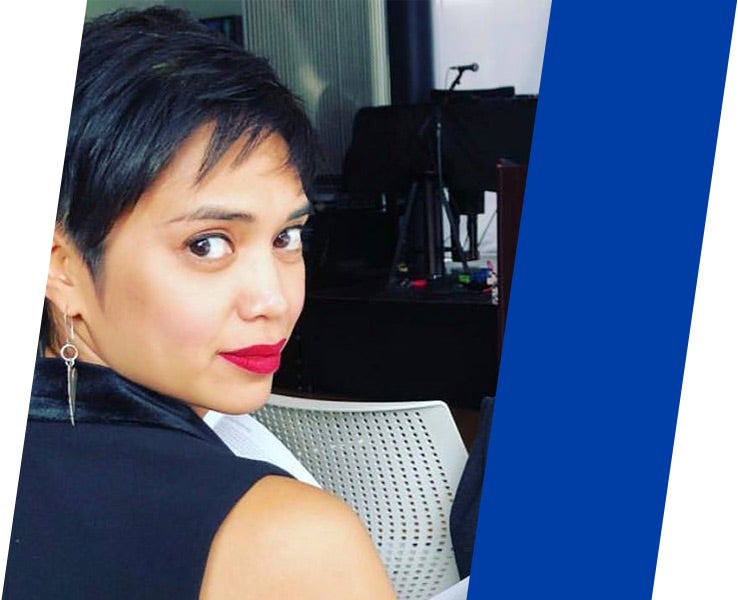Soon after she published her debut poetry collection, “God’s Will for Monsters,” Rachelle Cruz, 37, was approached by a young Filipino woman who told her she had read the book with her mother. Cruz, the daughter of Filipino immigrants herself, has never forgotten that moment.
“I felt my job was done,” said Cruz, who earned a master’s degree from UCR in 2012. “I speak to the Filipino experience in my poems, so the young woman’s words were a gift.”
A lecturer in creative writing at UCR since 2013, Cruz explores the folklore and customs she grew up with, pop culture, religion, and the effects of colonialism on the Filipino diaspora in her writing.
“I also write about family, about the women in particular, about Filipino mythology,” she said. “Sometimes I tap into the voices of Filipino mythic creatures in my work. Poetry is a short burst of language that contains imagery, a message, and beauty, and has a long tradition of telling histories, sharing songs, and passing traditions from one generation to the next.”
Although primarily a poet, Cruz is interested in other genres, including comics. Her book “Experiencing Comics,” a guide showcasing work by comic creators from underrepresented backgrounds, was published in 2018. She also teaches science fiction and fantasy at Western Colorado University.
Growing up in Hayward, California, Cruz took an interest in poetry in elementary and middle school, crediting excellent teachers who made poetry explode with life. In her adolescent years, she listened incessantly to hip-hop artist Lauren Hill.
“I remember writing the lyrics down and being drawn to the music of her words,” she said. “I found poetry was the space to express my emotions in a healthy way. It also helped me translate the world around me.”
Cruz’s advice to aspiring poets is to get to an open mic and meet other poets.
“Anyone can be a poet,” she said. “I tell my students a writer is someone who is writing. A poet is someone who makes poems. Poems are available for any person, occasion, and mood. It’s about finding poems that resonate with you.”
Her own community of poets was formed during her graduate years at UCR, learning writing from instructors like Juan Felipe Herrera and Chris Abani. Other major influences include Filipino poet Barbara Jane Reyes, poet Jason Magabo Perez, and Chris Aldana with whom Cruz created Digital Sala, an online community for reading and sharing poems.
“POEMS ARE AVAILABLE FOR ANY PERSON, OCCASION, AND MOOD. IT’S ABOUT FINDING POEMS THAT RESONATE WITH YOU.”
Started at a local bookstore in Riverside, Poetry is Power is now a summer program in San Bernardino, encouraging young adults to write and read and be in the community. Cruz hires UCR students to help co-teach in the program.
“While many of my students have written poetry as children, they lose that interest as they get older,” she said. “When I teach, I give them a sense of the different kinds of traditions in poetry — from the ghazals of Agha Shahid Ali to the exquisite works of the Ukrainian poet Ilya Kaminsky.”
Last November, Cruz’s priorities shifted when she became a mother. Nonetheless, she continues to work on her next poetry collection.
“I am constantly changing and evolving and continuously evaluating what is important,” she said. “I ask myself: Where do I want to spend my time? Where can I be of service to others? Where can I show kindness? Each time I teach a class at UCR, I reevaluate my pedagogy, my own ideas about poetry. In the end, I hope the work I do allows my students to find and strengthen their voices.”
